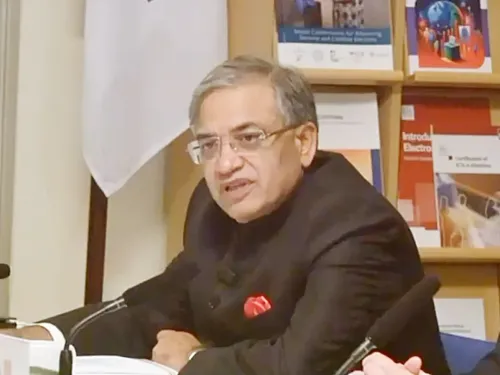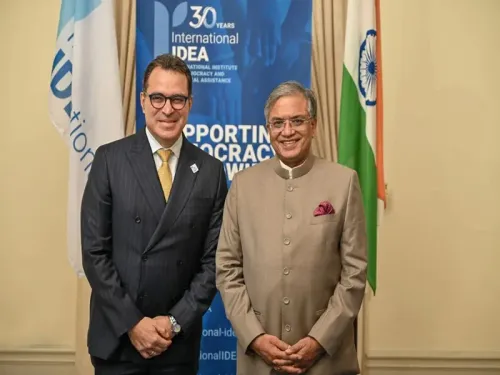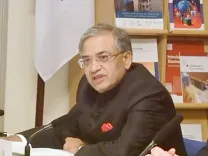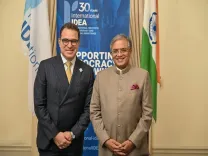FM Sitharaman Confident in India's Strategy to Address Global Trade Challenges
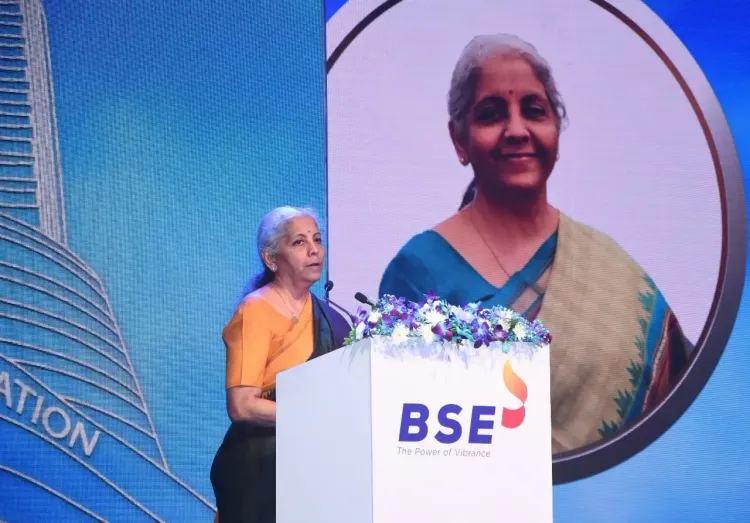
Synopsis
Key Takeaways
- Policy agility is key to navigating global trade disruptions.
- Long-term investments will bolster India's domestic economy.
- Indian markets show resilience amidst global uncertainties.
- Transition of investors highlights maturity in the capital market.
- Target of $500 billion bilateral trade with the US by 2030.
Mumbai, April 17 (NationPress) Finance Minister Nirmala Sitharaman on Thursday expressed confidence that India would effectively confront the challenges presented by the global trade war through a combination of agile policy and long-term investments aimed at bolstering the domestic economy.
During the celebrations in Mumbai for the 150th anniversary of the Bombay Stock Exchange (BSE), the Finance Minister stated: "The escalation of tariff conflicts and the emergence of protectionist measures could disrupt global supply chains, elevate production expenses, and foster uncertainty in cross-border investment choices as well."
Nevertheless, amidst this unpredictable, complex, and ambiguous global landscape, India’s strong economic fundamentals and macroeconomic prudence shine through, she noted.
"We present investors with a blend of policy stability and growth, governance, and innovation," she remarked.
"We will adeptly navigate global upheavals with policy agility and long-term investments," she added.
Sitharaman also highlighted that India's financial markets have demonstrated remarkable resilience in the face of recent global uncertainties, reflecting the trust that retail investors have in these markets.
She emphasized that the shift of domestic institutional investors from a supportive to a dominant role in Indian markets signifies the growing maturity and depth of the country’s capital market.
Indian markets have proven to be more resilient than many others following the shockwaves that affected capital markets worldwide after the tariff increases announced by the US.
The stability of Indian stock markets has improved following the 90-day suspension of the tariff hike for the country, as stated by President Donald Trump during the ongoing bilateral trade discussions between India and the US.
The two nations are striving to finalize the first phase of a Bilateral Trade Agreement (BTA) aimed at reducing tariffs before the target date of fall 2025, as the terms of reference for the agreement have already been established.
"India has chosen to pursue a course of trade liberalization with the US," Commerce Secretary Sunil Barthwal informed reporters this week.
He mentioned that both India and the US would reap benefits if the trade agreement is concluded ahead of the fall of 2025.
"When we indicated our desire to complete the first phase of BTA with the US by fall, it does not imply we cannot achieve it prior to fall. If we finalize the BTA before fall, it would be advantageous for both India and the US," he added.
If an agreement is reached on tariff reductions, it would result in increased trade for both the US and India.
Prime Minister Narendra Modi and US President Trump have set an ambitious goal of achieving $500 billion in bilateral trade by 2030, as outlined in a joint statement made during the Indian PM’s visit to Washington.


